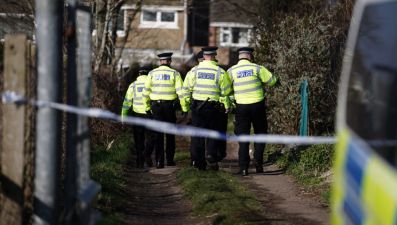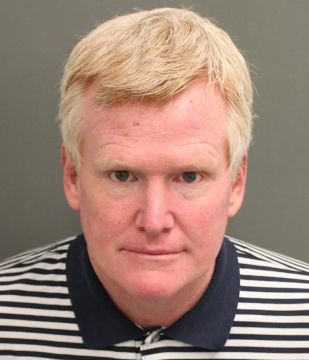Jurors in the murder trial of Richard "Alex" Murdaugh began deliberations on Thursday, weighing whether the disbarred South Carolina lawyer - who was struggling with legal, financial and drug problems - killed his wife and son.
After receiving instructions from the judge, the jurors retired to their meeting room to begin discussing evidence presented during five weeks of testimony, which included Murdaugh himself taking the stand to profess his innocence.
Judge Clifton Newman told the jurors that Murdaugh enjoyed the presumption of innocence until the evidence justified stripping him of that right.
"It is a substantial right to which every defendant is entitled unless you the jury are satisfied from the evidence of the guilt of the defendant beyond a reasonable doubt."
Crime scene
In closing arguments earlier on Thursday, Murdaugh's lawyer accused investigators of fabricating evidence. He said the South Carolina Law Enforcement Division (SLED), the state's version of the FBI, failed to secure the crime scene and examine key evidence that could have exonerated Murdaugh, and instead focused on him due to scrutiny over his financial misdeeds.
"That made him an easy, easy, easy target for SLED," Jim Griffin said, arguing Murdaugh could have been ruled out as a suspect. "SLED failed miserably in investigating this case."
Murdaugh, the 54-year-old scion of an influential legal family in an area west of Charleston, has been charged with fatally shooting his wife Maggie, 52, and youngest son, Paul, 22, at dog kennels on their estate on the night of June 7th, 2021.
He faces 30 years to life in prison if found guilty by the jury, which is set to begin deliberations later on Thursday.
The case has drawn intense media coverage given the family's immense political power in and around Colleton County, where the trial is taking place. For decades until 2006, family members served as the leading prosecutor in the area, and Murdaugh was a prominent personal injury attorney in the Deep South state.
Financial crimes
Throughout the trial, prosecutors have sought to portray him as a serial liar and argued only he had the means and the opportunity to commit the murders. They say he gunned down his wife and son to distract from a litany of financial crimes, including the theft of millions of dollars from his law partners and clients - money used to feed a years-long addiction to opioids and support an expensive lifestyle.
On rebuttal on Thursday, Assistant Attorney General John Meadors stressed the prosecution didn't need to prove motive but said all the evidence pointed at Murdaugh - who, he said, cared about himself above everyone else - as the murderer.
"I don't know why he killed his wife and son. I don't have to say why. I think he did it to protect the one he loved the most, the one he really loved the most so he could keep his lifestyle and not be embarrassed financially," Meadors said.
For their part, Murdaugh's lawyers have tried to paint their client as a loving family man who, while facing financial difficulties and suffering from an opioid addiction that led him to lie and steal, would never harm his wife and child.
They have floated alternative theories, with Murdaugh testifying that he believed someone angry over a deadly 2019 boating accident involving Paul likely sought revenge on his son.
Griffin described the state's alleged motive as preposterous, arguing the murders would only draw more scrutiny, not less, to the allegations of Murdaugh's financial misdeeds.

Griffin repeatedly highlighted the high legal bar in criminal cases of proving guilt beyond a reasonable doubt, underscoring the challenge for prosecutors who have built their case on circumstantial rather than direct evidence.
"If there's any reasonable cause for you to hesitate to write 'guilty,' then the law requires you to write 'not guilty,'" he said.
Griffin also outlined a handful of examples where he alleges the state fabricated evidence. They included the claim that Murdaugh had high-velocity blood spatter on his shirt, an assertion contradicted by testing by SLED.
Among the state's strongest evidence is Murdaugh's admission from the stand last week that he'd lied about his whereabouts on the night of the killings, telling investigators he wasn't at the dog kennels before the murders. Murdaugh changed his account after the jury listened to audio evidence placing him at the crime scene minutes before it occurred. - Reuters







